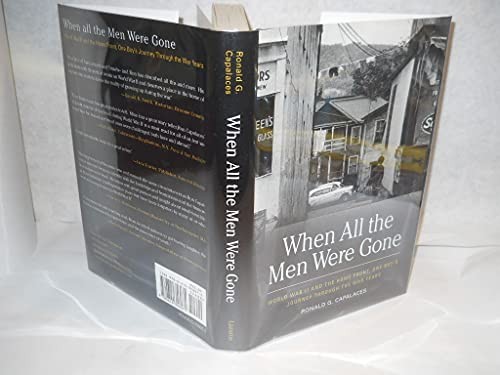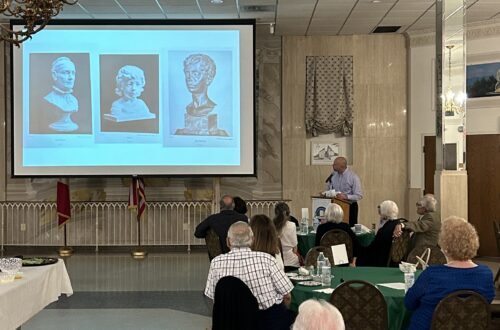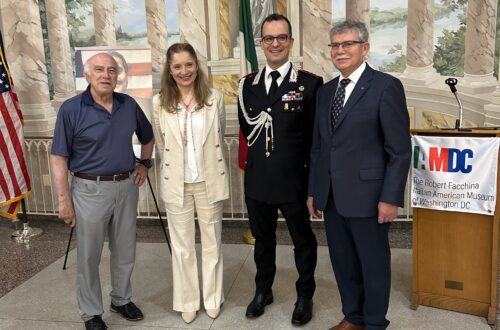
Author Ronald G. Capalaces Describes Boyhood on the Home Front in World War II
By Nancy De Santi

Credit: Nancy DeSanti
On Sunday afternoon, July 14, 2024, a group of AMHS members and guests enjoyed a delicious lunch followed by a talk by author, Ronald G. Capalaces. The event took place in the Pines of Florence Italian Restaurant in downtown Washington, D.C.
The title of Capalaces’ book is “When All the Men Were Gone: World War II and the Home Front, One Boy’s Journey Through the War Years.” Following a brief introduction by Joey Scafetta, the author read two chapters from the book describing his boyhood in Binghampton, New York, in the years during the war.

In one moving excerpt, he described being sent home early from his elementary school, not knowing that he was about to learn the tragic news that his father, whom he never got a chance to know, had been killed fighting against the Nazis in North Africa in May 1943. In the book, he writes about how shortly afterwards, the family received a package containing a letter of condolence from President Franklin D. Roosevelt, a medal which he later learned was a Purple Heart, and his father’s empty leather wallet.
As Capalaces said, the book is a remembrance of living through a period when men left their families and loved ones to fight “a war they would not return from until it was won, or they were crippled or dead.” As the author pointed out, those at the home front suffered the loss of their loved ones, and “no one was left untouched by this war.”
Capalaces also described a nostalgic time when mail and newspapers were delivered twice a day, when everything cost a lot less than nowadays, and when life seemed to be so much simpler, before all the new technology. He noted that his generation came of age between the 1940s and the 1960s, and he stated that his goal in writing the book was to try to define his generation. As he concluded, “it was not the greatest generation, but the one closest to it.”
July/August 2024





